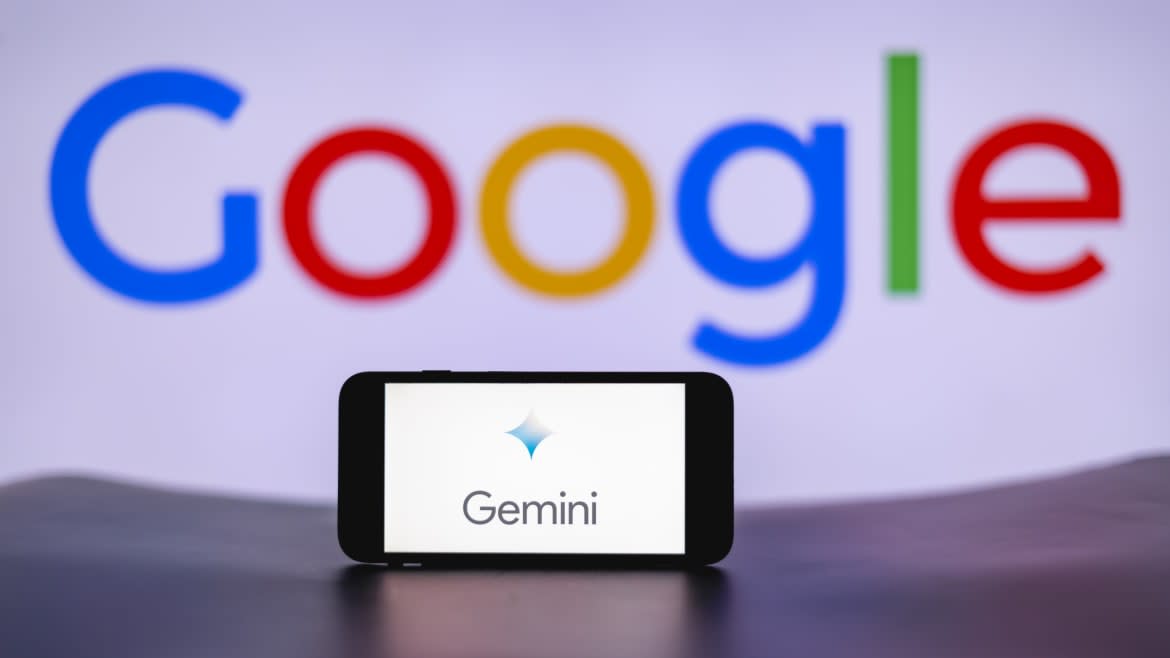Google’s Gemini AI Update Is Groundbreaking—and Disappointing

Google announced on Thursday that it’s renaming its popular artificial intelligence chatbot: Bard is now Gemini. Simultaneously, Google is also releasing a new app for the bot for Android that’s intended to replace Google Assistant. The company will also be releasing a paid version of the bot called Gemini Ultra 1.0, which promises to be much more powerful than the free version.
The update represents a massive shift in focus for the company—and is potentially its most consequential product release in years. It’s also more evidence that Google is set on becoming an AI-first company for the foreseeable future.
“Our mission with Bard has always been to give you direct access to our AI models, and Gemini represents our most capable family of models,” Google VP of Gemini Sissie Hsiao wrote in a blog post. “To reflect this, Bard will now simply be known as Gemini.”
The free version of the chatbot is called Gemini Pro and is available to all Google and Android users. The multimodal AI allows users to prompt it using text, voice commands, and images. The next tier is Gemini Ultra, which costs $20 a month but offers access to its most powerful model. (This product is a direct response to OpenAI’s ChatGPT Plus $20-a-month subscription that gives users access to GPT-4.) Along with the chatbot, users also get 2 TB of cloud storage.
Despite the name change, the underlying model powering Gemini will essentially be the same as Bard. The most notable update, though, is the fact that the company wants to incorporate Gemini into Android phones as an alternative to Google Assistant, the company’s virtual assistant software and answer to Apple’s Siri. Once downloaded, Gemini would replace Google Assistant and, ostensibly, accomplish the same tasks such as “setting timers, making calls, and controlling your smart home devices,” Hsiao said.
But it’s a different story in practice—at least, for now. Gemini is currently missing a range of basic features that many users rely on. For example, voice commands don’t automatically send when prompted. Gemini also can’t complete certain tasks that Google Assistant performs, such as creating reminders and events on Google Calendar. Hsiao noted that the company is “working to support” more tasks and features in the future.
Google Wants to Play Both Sides of the AI Arms Race
This begs the question: If Gemini can’t complete simple tasks that many users routinely rely on, why release it at all? The answer is likely that Google is simply trying to keep up with the breakneck speed of the AI trend.
The release of OpenAI and the quick adoption of generative AI by competitors such as Microsoft caught Google on its back foot. Since then, the company has been rapidly incorporating AI into its different products including its search engine and Google Workplace. Google CEO Sundar Pichai has been a driving force behind the company’s AI-ification efforts too—even pushing outright falsehoods about its technology’s capabilities.
Incorporating a Gemini virtual assistant into their phones helps reinforce the idea that Google is an AI-first company. This is the future of how we’re going to interact with our technology—or at least it is if Google has anything to say about it.
“It’s an important first step in building a true AI assistant,” Hsiao said, “one that is conversational, multimodal, and helpful.”
Get the Daily Beast's biggest scoops and scandals delivered right to your inbox. Sign up now.
Stay informed and gain unlimited access to the Daily Beast's unmatched reporting. Subscribe now.


